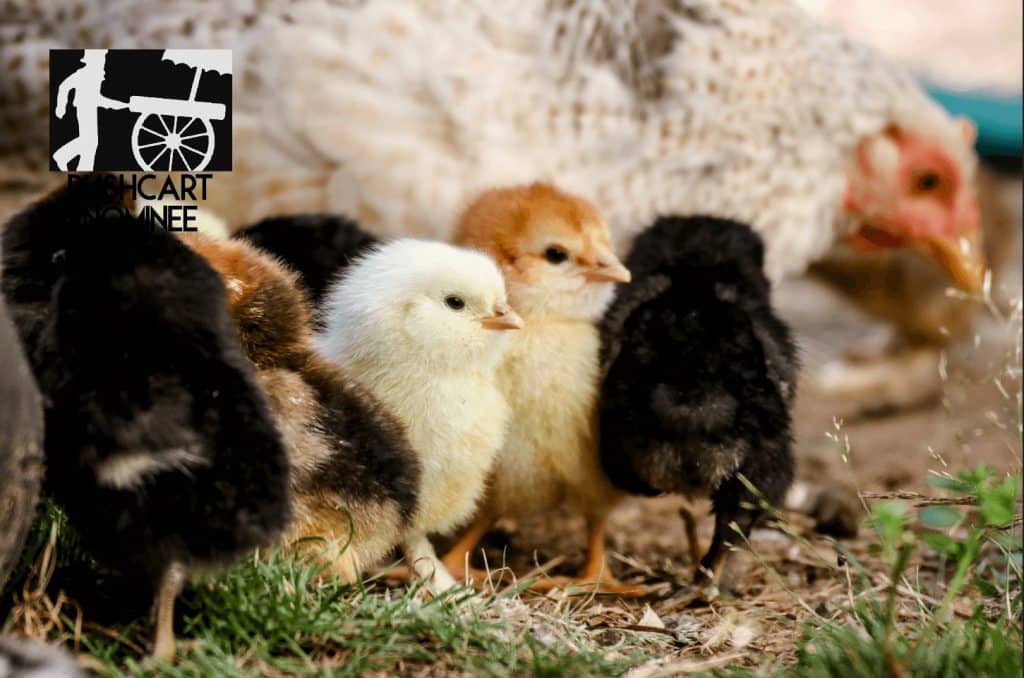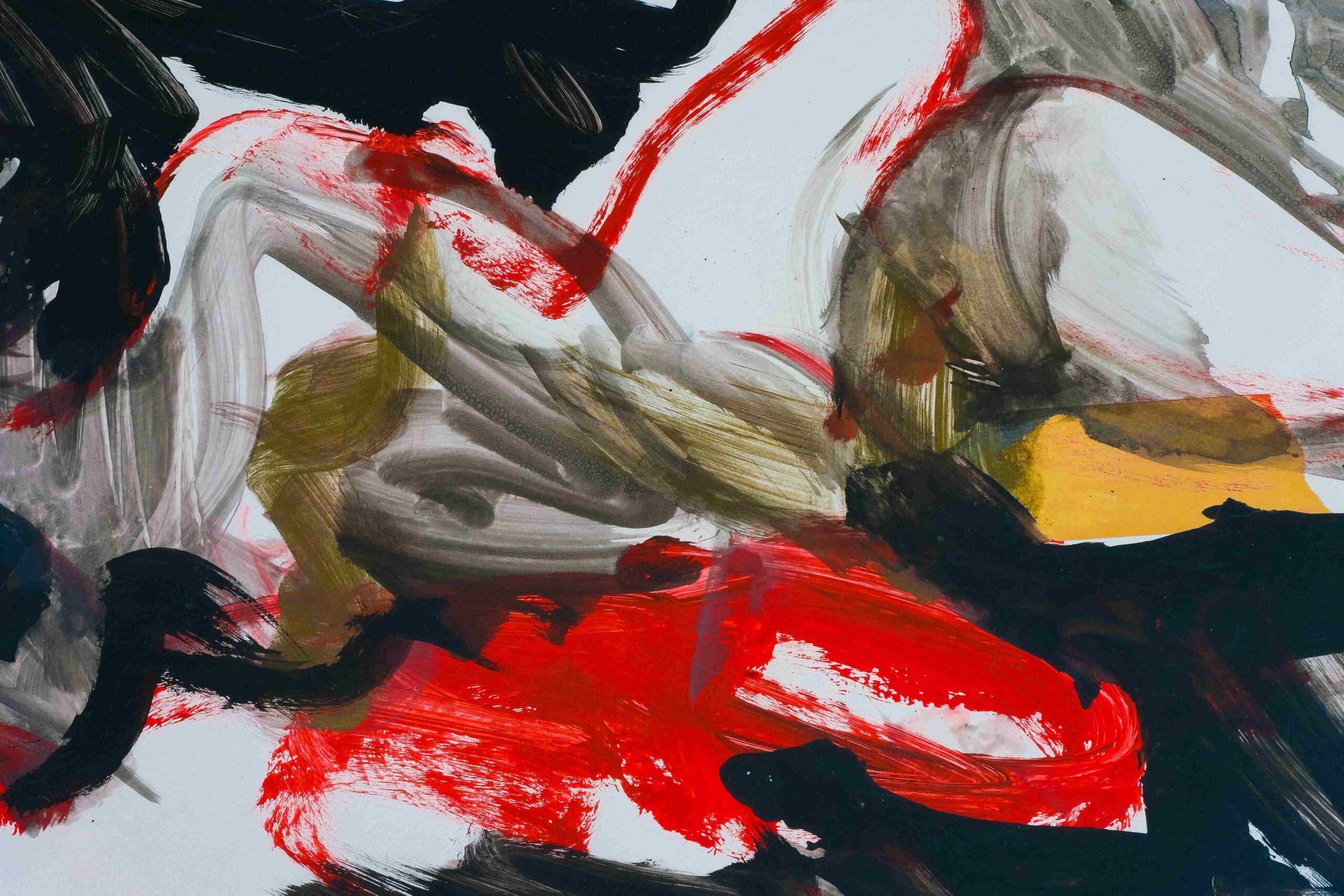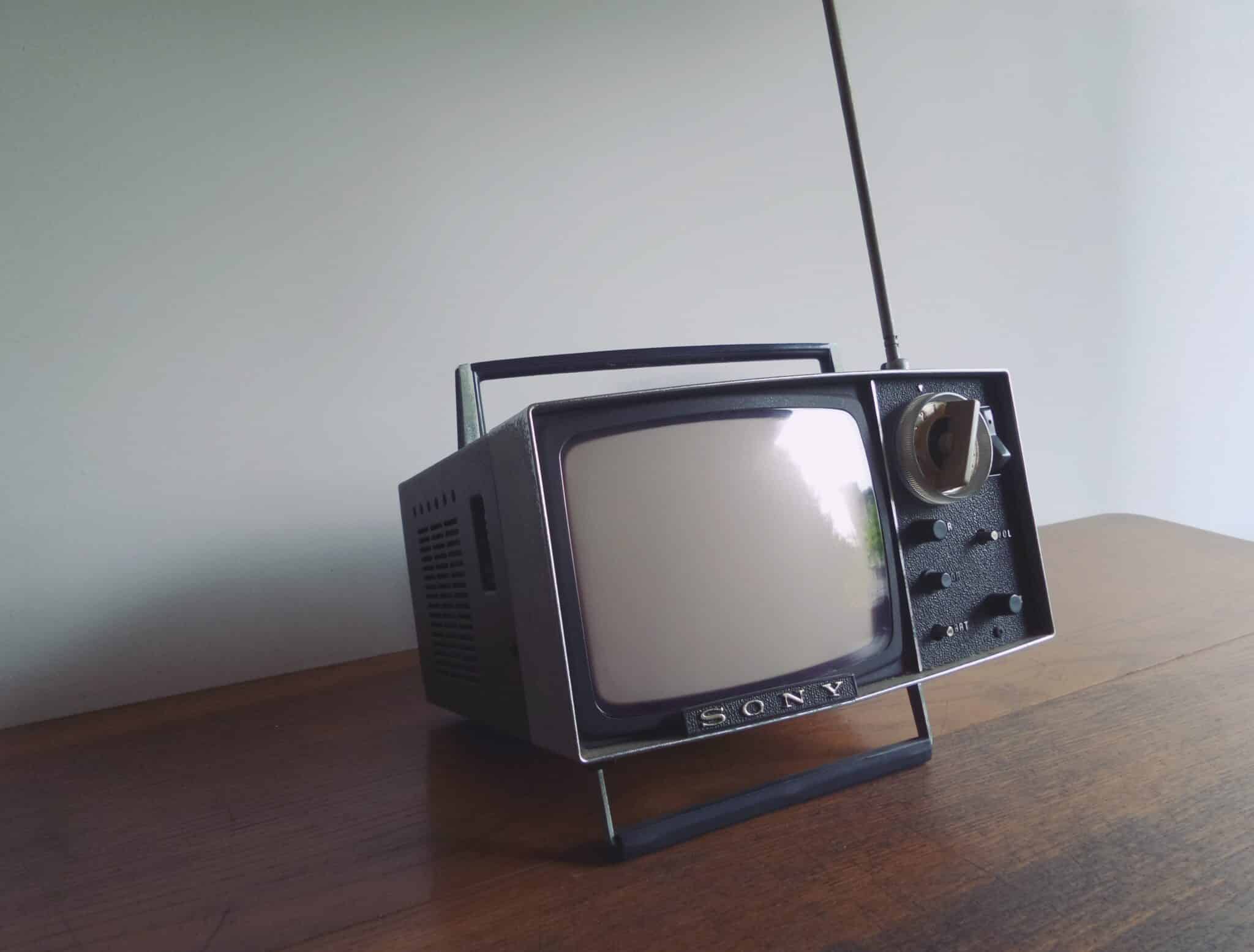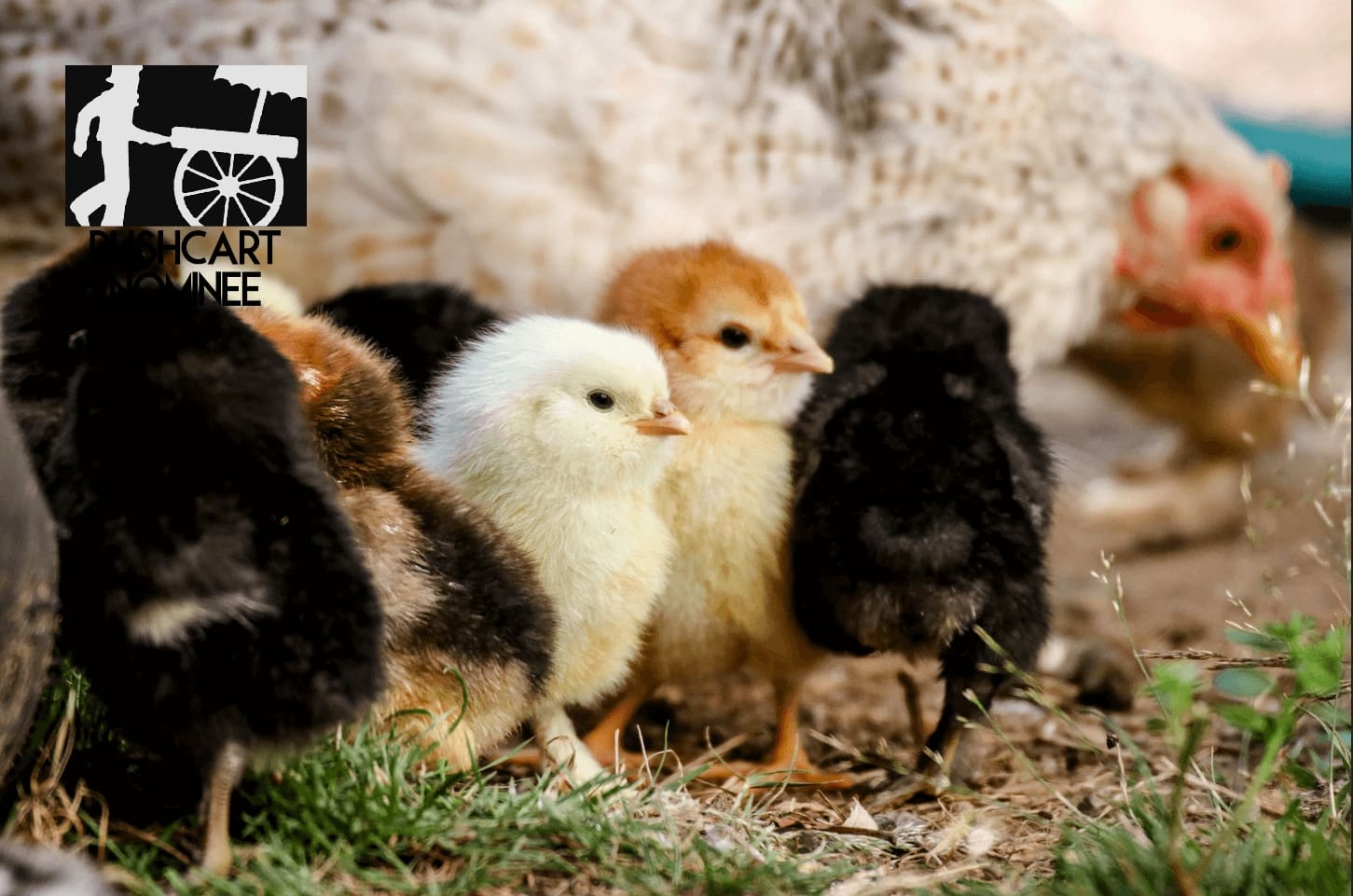Losing a Hatch of Baby Chicks, or Mourning (Unfinished)
Author’s Memo

“Mourning (Unfinished)” is an essay about the way my experiences with farm animals helped me come to terms with a miscarriage I had many years ago. In the essay, I describe the pain of losing a hatch of baby chicks and how I realized the pain was so very similar to a miscarriage I had in my 20s. In the essay, I hope to reveal the deep connections humans can have with animals and how much we can learn about ourselves when we listen–listen to nature, listen to animals, listen to the pain of loss that is a fairly regular occurrence on any farm. It is this listening that help us in healing. Our approach to raising animals may not be the most common, but I have found we are not alone in the bonds we build. There are many farmers who see their animals as partners rather than property, and I feel it is important to be a part of the movement seeking to give a voice to those farmers and to the fantastic animals that are largely misunderstood by the public at large.
I cried for Andie and the baby chicks I heard but didn’t get to meet. I cried for my baby I heard and didn’t get to meet. And I cried for myself that I had been living with such anger and resentment for other women, my sisters in the world, for years because I didn’t get a chance to talk about and heal from my own tragedy.

I didn’t want to turn off the incubator, to give up on those little eggs still there. It would be giving up my hope. But it had been more than a week since the first chick hatched. I had to face reality. I had planned so well. I gathered the eggs from all of my favorite hens, and I had two from my most special hen, Poe. She was a black Easter Egger chicken full of personality, different from all of the others in some indescribable way. She was getting older, slowing down, and this was likely my last chance to get one of her babies.
The first one to pip was Poe’s baby! I was over the moon. As an academic turned chicken farmer, I had everything down to a science. I was careful with the temperature, with the humidity. I monitored the water level carefully. I had hatched a clutch of eggs the previous summer. Out of ten eggs, we hatched eight beautiful, healthy babies. I had been through this process before. I thought I knew what to expect.
But nothing happened after the pip. I could hear the baby cheeping and cheeping, but the unzip wouldn’t come. After twenty-four hours, I was online and researching everything I could about what to do. I learned that it was risky but that I could help a little. I chipped away at the eggshell just a little bit a few times that next morning. It seemed to be enough, as the baby hatched within a few hours.
She was beautiful, dark like her mama. I told my little boy we would call her a girl until we knew differently and would hope for the best. We can keep many hens on our farm, but we can keep just one or two roosters. The roosters can get aggressive and are too hard on the hens. We always hope for hens.
My little boy pulled a chair up to the incubator and read her a story. He sat with her a long time. When I came back to check on him, he said, “I named her Andie.”
“It’s a perfect name,” I said.
Late that night, our family tried to save Andie. After much research on our options, the best plan was to use a soft, clean toothbrush to brush the sticky from the egg off of her. We had to keep her warm the whole time though, as baby chicks need very warm temperatures. I held Andie in my hands while my husband gently brushed her with a soft toothbrush.
But I was a little worried that Andie didn’t seem to be drying off and fluffing up. Usually, within a few hours, the chicks will dry and begin to fluff. It had been just a couple of hours, so I tried to be positive. Still, that evening, as Andie was still wet and sticky and struggling to walk, I knew there was trouble.
I posted online to some of my farmer friends for advice. It was a long shot, but I was going to have to pull her from the incubator and try to help her dry. Then, the plan was to keep her at my chest during the day, to give her the contact. During all of this worry over Andie, two other chicks had pipped and stopped. They weren’t unzipping, and I began to realize this whole hatch may be going terribly wrong.
Late that night, our family tried to save Andie. After much research on our options, the best plan was to use a soft, clean toothbrush to brush the sticky from the egg off of her. We had to keep her warm the whole time though, as baby chicks need very warm temperatures. I held Andie in my hands while my husband gently brushed her with a soft toothbrush. Our son held the heater steady, adjusting the temperature as we directed him.
Miraculously, it worked! Andie was fluffy, warm, and she looked like things were going to be okay. I tucked her into my bathrobe and held her at my chest. It’s a dangerous thing for someone like me with such a soft heart to do—to bond with a baby chick with such a slim chance of making it, but what choice did I have?
Andie quit cheeping and finally relaxed and rested. I held her for hours. Late that night, however, I had to make the tough decision to put her back in the incubator. I couldn’t sleep with her, though I wanted to try, but I was worn. I was afraid that, even if I could manage to sleep sitting up with her at my chest, I could drop her or squish her.
I put her back in the incubator.
I barely slept and was up very early. Andie was cheeping desperately, so back into my bathrobe she went. But she was weaker than she had been the night before. She grew weaker throughout the day, and by the late afternoon she was gone.
“It’s just a chicken,” people say. “It still hurts,” I say.
I was going over and over in my head all of the things I should have done differently. I shouldn’t have opened the incubator, I thought. People say not to do that. I shouldn’t have put Andie back in the incubator that night. She would have made it if I could have just held onto her.
I had four more eggs in the incubator and could hear cheeping from a couple of them, but days passed. The pips never came, and the cheeping stopped.
I had lost every single one of them.
After much research, we figured out that our incubator’s humidity gauge was inaccurate, and that was likely what led to the failed hatch. Still, I was going over and over in my head all of the things I should have done differently. I shouldn’t have opened the incubator, I thought. People say not to do that. I shouldn’t have put Andie back in the incubator that night. She would have made it if I could have just held onto her.
I was full of blame for myself and a desperate kind of emptiness I couldn’t explain. I knew we couldn’t try another hatch until I figured out what happened, and after that, it would be another twenty-one day wait for the new baby chicks to develop. There was no quick fix for this pain. I was going to have to deal with it.
And I couldn’t believe the amount of pain I felt. I cried when we lost Andie, but the worst was unplugging the incubator. The giving up. I felt so empty, so hopeless.
Being a farmer teaches a person a lot about life and death. I had been raising chickens for nearly five years when Andie happened in my life, so I had grown somewhat used to life and death on the farm. Yet I couldn’t get over the failed hatch. I couldn’t stop blaming myself. I would walk by the door of the room where the incubator had been and cry.
I was also hearing cheeps. I have since learned that hearing voices or sounds during grief is not uncommon. People hear the voices of their loved ones. People hear the barks of their dogs. These are the sounds of “grief ghosts.”
I was hearing cheeps.
After nearly a week of this, my husband was starting to worry. I couldn’t stop thinking about the emptiness, the failure, the powerful sense of loss. My husband and I talked, and he expressed his concerns.
“This doesn’t seem healthy,” he said.
I knew he was right. I confessed how much pain I felt walking by the room where the incubator had been. I confessed that I kept having urges to go back to the incubator to check to see if the babies were okay. I told him I actually thought I was hearing cheeping throughout the house. I was really starting to worry about myself as well. I confessed to my husband that I had kept Andie’s little chicken body in the garage for two days, just in case.
One evening a few days later, I was getting dressed in our bedroom and looked at myself in the mirror. For some reason, my eyes were drawn to my stomach, and then it all came rushing over me in a wave of sadness that I had refused to deal with for nearly two decades.
In my 20’s and married to my first husband, I had lost a baby. I wasn’t very far along, just about eight weeks along, but I had seen and heard the heartbeat. When I miscarried, I remember feeling so confused and broken. None of the women in my family had ever lost a baby, so I thought it was something surely wrong with me. Or maybe it was something I had done wrong. I shouldn’t have gone for that walk the night before. I shouldn’t have taken the headache medicine before I even knew I was pregnant.
For years, I actually found myself feeling angry at women who mourned or talked about losing their babies through miscarriages. I am a kind and extremely empathetic human. I work at being kind to others, and I didn’t understand this anger.
I had a long list of things I did wrong that must have caused me to lose the baby. Of course, it wasn’t my fault at all, but I needed some deep support to help myself understand this. I didn’t get it.
My husband at the time told me he was “thankful” I had lost the baby. I lived in a culture that taught me to blame myself. And I was raised in a family that was really good at burying pain instead of addressing it. “God has a reason for everything,” so you just had to get over whatever had happened.
I felt alone in my grief and didn’t have the tools to deal with it.
I did the only thing I knew to do. I bottled up all of my sadness about my miscarriage and tried not to talk about it.
Inside, I became cold about whole experience, and I felt myself turning this coldness outward in the form of judgment of other women.
For years, I actually found myself feeling angry at women who mourned or talked about losing their babies through miscarriages. I am a kind and extremely empathetic human. I work at being kind to others, and I didn’t understand this anger.
I would later go on to have two beautiful children and a new husband and a new life, but I held onto this anger. When I would hear someone talk about a miscarriage, that feeling of anger would creep in. When I would see women telling their stories of loss and mourning related to miscarriages on social media, I would cringe and scroll by quickly.
I realized standing in my bedroom that day that losing those baby chicks had triggered all kinds of grief from my miscarriage—grief that had turned into anger and resentment over the many years since I had lost my baby.
The feelings of loss from losing the baby chicks and losing my own baby were amazingly the same: It was all my fault. There may be no more babies coming. I had to deal with the emptiness.
The emptiness.
And I sank to the floor on my knees and I cried. I cried for Andie and the baby chicks I heard but didn’t get to meet. I cried for my baby I heard and didn’t get to meet. And I cried for myself that I had been living with such anger and resentment for other women, my sisters in the world, for years because I didn’t get a chance to talk about and heal from my own tragedy.
Though I was heartbroken from the loss, I also felt thankful—thankful to Andie for coming into my life for the brief moment she was with me to teach me about my brokenness so that I could finally begin to heal.
Editor’s Note: “Mourning (Unfinished)” was originally published
at https://farmerish.net/mourning-unfinished/ and is reprinted
here with kind permission from its author.
OTHER ARTICLES BY CRYSTAL:
Photo by Michael Anfang on Unsplash










